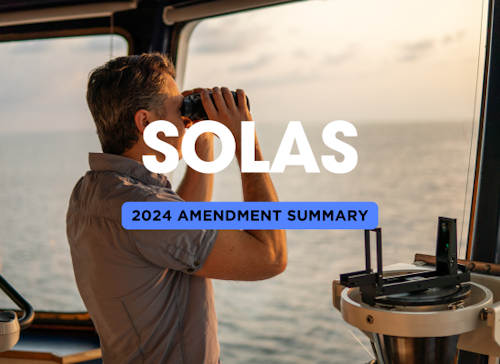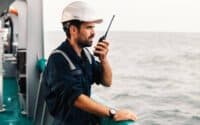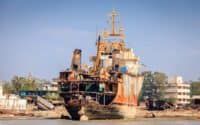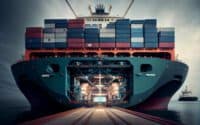Quick Summary: 2024 SOLAS amendments

The International Convention for the Safety of Life at Sea (SOLAS) is a key international maritime safety treaty that sets minimum safety standards in the construction, equipment, and operation of merchant ships. In 2024, significant amendments to SOLAS will come into force, reflecting advances in maritime technology and addressing new safety challenges. These changes aim to enhance the safety and efficiency of maritime operations globally. Today we summarizes the key SOLAS amendments and provides a detailed table for easy reference.
| ShipUniverse: SOLAS Amendments (2024) | |
|---|---|
| Amendment | Description |
| Global Maritime Distress and Safety System (GMDSS) | Updates to enable modern communication systems and remove obsolete equipment requirements. Applicable to ships of 300 GT and above. |
| Watertight Integrity | New requirements for watertight integrity in cargo and passenger ships, focusing on probabilistic damage stability. |
| Fire Detection Systems | Adjustment in requirements to allow one short circuit isolator per deck on cargo ships and passenger ship balconies. |
| Life-Saving Appliances | Modifications including the removal of buoyant oars requirement for lifeboats with two independent propulsion systems. |
| High-Speed Craft (HSC) Codes | Amendments to the 1994 and 2000 HSC Codes, including new safety measures and equipment requirements. |
| Special Purpose Ships (SPS) Code | Updates to safety and operational standards for special purpose ships. |
| Mobile Offshore Drilling Units (MODU) Code | Enhanced safety requirements and operational guidelines for mobile offshore drilling units. |
| International Gas Fuel (IGF) Code | Amendments to improve safety for ships using gases or other low-flashpoint fuels, addressing fire protection and fuel distribution. |
Detailed Description
1. Global Maritime Distress and Safety System (GMDSS) The GMDSS amendments focus on modernizing communication systems on ships. This includes enabling new communication technologies while phasing out obsolete systems. The changes affect SOLAS chapters II-1, III, IV, and V, and apply to all ships of 300 GT and above.
2. Watertight Integrity Changes to SOLAS Chapter II-1 enhance the requirements for watertight integrity in cargo and passenger ships. These include new probabilistic damage stability measures, ensuring that ships are better prepared to withstand damage and flooding.
3. Fire Detection Systems Amendments to fire detection systems require fewer short circuit isolators on cargo ships and passenger ship balconies, streamlining the installation process while maintaining safety standards.
4. Life-Saving Appliances Updates to SOLAS Chapter III and the Life-Saving Appliances (LSA) Code include removing the requirement for buoyant oars in lifeboats equipped with two independent propulsion systems. This change reflects advancements in lifeboat design and functionality.
5. High-Speed Craft (HSC) Codes Amendments to the 1994 and 2000 HSC Codes introduce new safety measures and equipment requirements, ensuring that high-speed craft adhere to the latest safety standards.
6. Special Purpose Ships (SPS) Code The SPS Code has been updated to include new safety and operational standards for special purpose ships, reflecting the evolving nature of these vessels' roles and missions.
7. Mobile Offshore Drilling Units (MODU) Code Enhanced safety requirements and operational guidelines have been introduced for mobile offshore drilling units. These amendments aim to improve safety in the offshore drilling industry.
8. International Gas Fuel (IGF) Code The IGF Code amendments focus on improving the safety of ships using gases or other low-flashpoint fuels. Key updates include new fire protection measures and guidelines for safe fuel distribution outside machinery spaces
These amendments underscore the continuous efforts by the IMO to enhance maritime safety and address emerging challenges in the industry. Ship owners and operators must stay informed and comply with these new regulations to ensure the safety and efficiency of their maritime operations.

Do you have a Maritime Product or Service that may be of interest to Shipowners? Tell us about it here!
Do you have feedback or insights? Please reach out to editor @ shipuniverse.com



